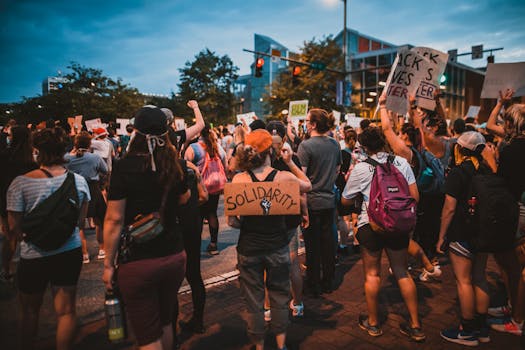+17162654855
+17162654855
DMV Publication News serves as an authoritative platform for delivering the latest industry updates, research insights, and significant developments across various sectors. Our news articles provide a comprehensive view of market trends, key findings, and groundbreaking initiatives, ensuring businesses and professionals stay ahead in a competitive landscape.
The News section on DMV Publication News highlights major industry events such as product launches, market expansions, mergers and acquisitions, financial reports, and strategic collaborations. This dedicated space allows businesses to gain valuable insights into evolving market dynamics, empowering them to make informed decisions.
At DMV Publication News, we cover a diverse range of industries, including Healthcare, Automotive, Utilities, Materials, Chemicals, Energy, Telecommunications, Technology, Financials, and Consumer Goods. Our mission is to ensure that professionals across these sectors have access to high-quality, data-driven news that shapes their industry’s future.
By featuring key industry updates and expert insights, DMV Publication News enhances brand visibility, credibility, and engagement for businesses worldwide. Whether it's the latest technological breakthrough or emerging market opportunities, our platform serves as a bridge between industry leaders, stakeholders, and decision-makers.
Stay informed with DMV Publication News – your trusted source for impactful industry news.
Energy

**
The Ministry of External Affairs (MEA) of India has underscored the critical importance of strengthened global partnerships in the ongoing fight against terrorism in 2024. In a recent briefing, the MEA highlighted India's proactive role in fostering international cooperation to combat the evolving threat landscape, emphasizing the need for a multi-pronged approach targeting terrorist financing, cross-border terrorism, and the proliferation of extremist ideologies. This renewed focus comes amidst a complex geopolitical environment marked by rising instability and the persistent threat of transnational terrorism.
India's strategy for combating terrorism relies heavily on forging strong bilateral and multilateral partnerships. The MEA emphasized the significant progress made in enhancing cooperation with key global players, including:
United States: The India-US strategic partnership continues to be a cornerstone of the counter-terrorism effort. Joint military exercises, intelligence sharing, and collaborative efforts in disrupting terrorist networks have been instrumental in mitigating threats. The recent focus on countering terrorism emanating from Afghanistan and Pakistan has further solidified this partnership.
Russia: Despite geopolitical complexities, counter-terrorism cooperation with Russia remains crucial. Shared experiences in tackling terrorism and the exchange of intelligence have proven invaluable. This cooperation extends to regional forums like the Shanghai Cooperation Organisation (SCO).
France: France's commitment to fighting terrorism aligns well with India's strategic interests. Joint efforts focus on intelligence sharing, capacity building, and cooperation in combating cyberterrorism.
Israel: India and Israel share a common understanding of the challenges posed by terrorism and have been collaborating on developing advanced security technologies and strategies for counter-terrorism.
Quadrilateral Security Dialogue (Quad): The MEA highlighted the significance of the Quad (India, US, Japan, Australia) in promoting a free and open Indo-Pacific region, a key element in addressing the root causes of terrorism. The shared commitment to upholding international norms and combating terrorism is strengthening the Quad's counter-terrorism cooperation.
The MEA acknowledged the evolving nature of the global terrorist threat, highlighting several key challenges:
Rise of online radicalization: The increasing use of the internet and social media platforms by terrorist organizations for recruitment and propaganda poses a significant challenge. Combating this requires international collaboration to monitor and regulate online content, while respecting fundamental freedoms.
Terrorist financing: The MEA stressed the importance of international cooperation to disrupt the flow of funds to terrorist groups. This includes strengthening financial regulations, enhancing information sharing, and pursuing effective legal frameworks to prosecute those involved in terrorist financing. The Financial Action Task Force (FATF) plays a crucial role in this global endeavor.
Cross-border terrorism: The MEA reiterated India's concerns regarding cross-border terrorism, emphasizing the need for states to take decisive action against terrorist safe havens and support networks. This necessitates strong international pressure and the implementation of effective counter-terrorism measures.
New forms of terrorism: The MEA also recognized the emergence of new forms of terrorism, including lone-wolf attacks and the use of drones and other advanced technologies by terrorist organizations. Adapting to these evolving tactics requires continuous investment in intelligence gathering, technological advancements, and innovative counter-terrorism strategies.
India's commitment to combating terrorism extends beyond bilateral cooperation. The MEA underscored India's active participation in various multilateral forums, including:
United Nations: India actively participates in UN counter-terrorism initiatives, advocating for stronger international legal frameworks and enhanced cooperation among member states.
Shanghai Cooperation Organisation (SCO): The SCO provides a regional platform for cooperation on counter-terrorism, particularly concerning the threats emanating from Afghanistan and Central Asia.
BRICS: Cooperation within the BRICS framework also contributes to the global counter-terrorism efforts through information sharing and coordinated actions.
The MEA's briefing emphasized the need for a holistic and multi-faceted approach to counter-terrorism. This includes:
Strengthening international legal frameworks: Developing comprehensive international laws to address terrorism, including its financing and the prosecution of perpetrators.
Enhancing intelligence sharing: Improving the exchange of timely and accurate intelligence information between countries.
Capacity building: Assisting partner nations in building their counter-terrorism capabilities through training, technology transfer, and other support mechanisms.
Addressing the root causes of terrorism: Tackling the underlying socio-economic and political factors that contribute to the rise of terrorism.
The fight against global terrorism requires sustained and collaborative efforts. India's proactive engagement with its strategic partners and participation in multilateral forums demonstrates its unwavering commitment to combating this global threat and securing a safer world for all. The MEA's emphasis on partnerships in 2024 underscores the need for a unified global response to this complex challenge.